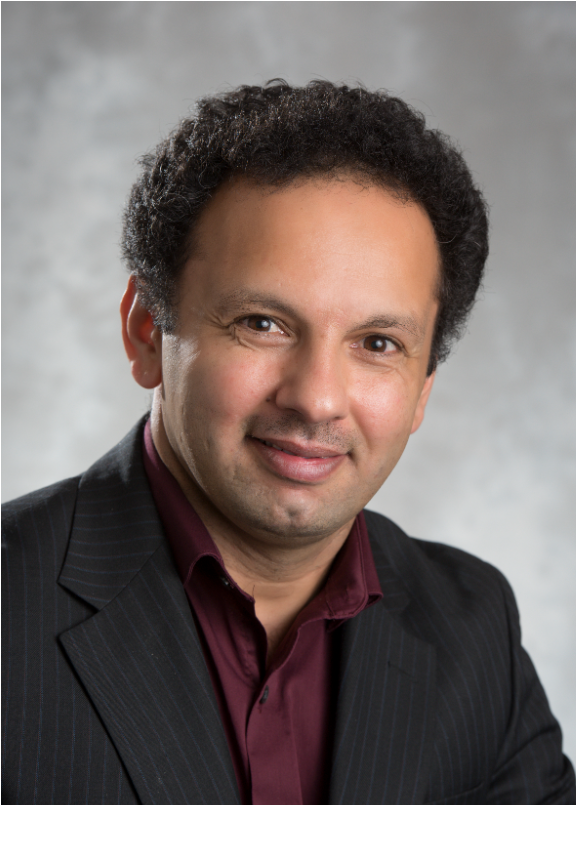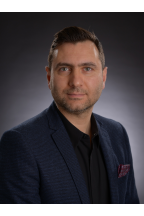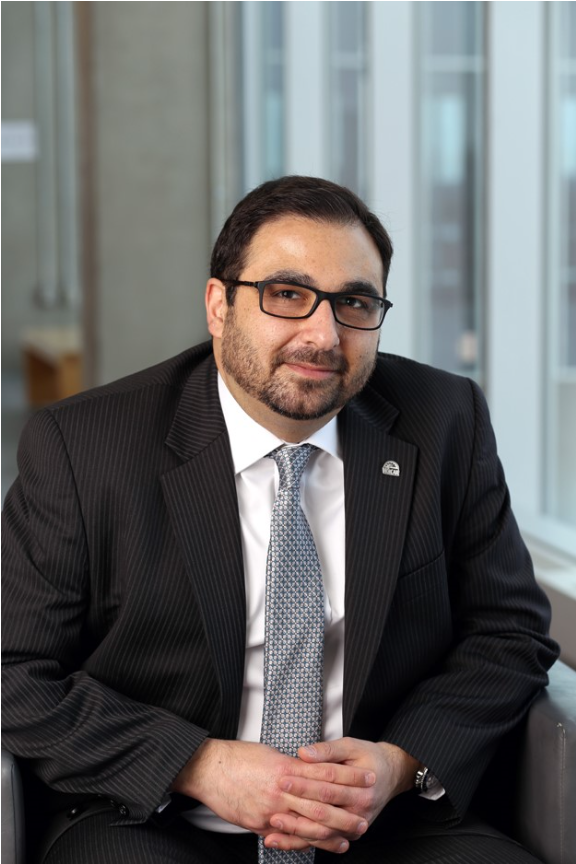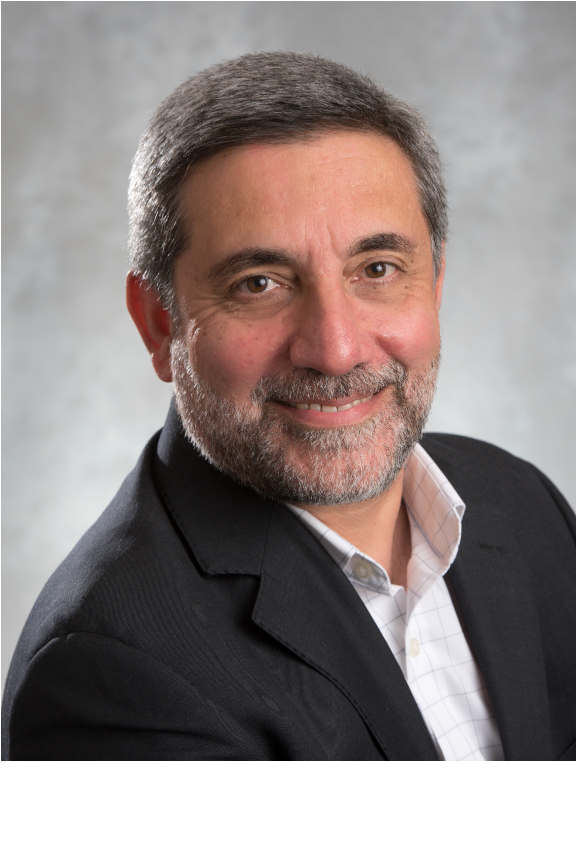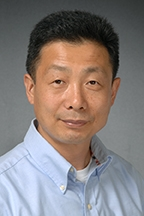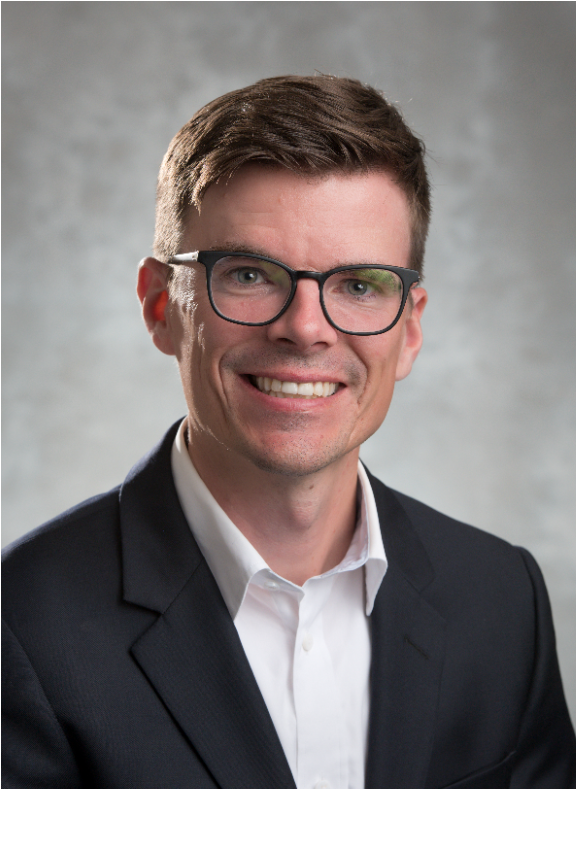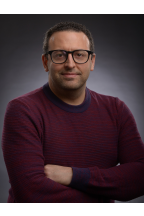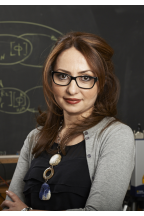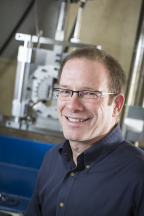Specific areas of Research include:
- AI for Manufacturing
- Composites Research
- Computational Mechanics Research Group (CMRG)
- Fatigue and Stress Analysis
- Forming and Crash
- Impact Mechanics and Material Characterization Group(IMMC)
- Orthopaedic Mechatronics
- Vibrations and Energy Harvesting
Professor Information:
Research interests
- Fracture
- Formability
- Plasticity
- Micromechanics
- Computational Mechanics
- Automotive Metal Forming & Crash Simulations
- Advanced/Ultra High Strength Steels
- Aluminum alloys
- Magnesium alloys
- Warm Forming & Hot Stamping
- Experimental and numerical characterization of automotive sheet metal formability and fracture
- Fracture prediction in automotive crash events
- Computational mechanics of plasticity
- Strain measurement using digital image correlation (DIC)
- Non-linear finite-element analysis
Naveen Chandrashekar is an Associate Professor in the Department of Mechanical and Mechatronics Engineering at the University of Waterloo.
His research interests are in orthopaedic biomechanics, the design of biomedical devices, and tissue engineering. Professor Chandrashekar and his team are conducting innovative research on the anterior cruciate ligament, commonly known as the ACL. He has designed a simulator to enact the movements of a human knee to measure the damage inflicted on the ACL during athletic maneuvers. A sensor is attached to the mechanical ligament on the knee simulator, and readings from the sensor provide insight into how different motions and factors like movement from the hip influence the injury. Using this approach, the team is working on designing and evaluating new knee braces.
- Knee Mechanics
- Orthopaedics
- Ligament Injury
- Musculoskeletal Biomechanics
- Implant Design
- Cartilage Injury
- In-Vitro Injury Simulation
- Tissue Engineering
- Instrumentation Design
- Biomechanics and Biotechnology
Dr. Cronin’s expertise lies in the areas of impact mechanics, material characterization applied to trauma biomechanics, auto crash and occupant simulation, and multi-material lightweight vehicles.
The development of advanced numerical models and interpretation of physical test data for impact events requires a fundamental understanding of high-deformation rate material properties, followed by implementation using appropriate constitutive equations in numerical codes. Test equipment supporting this research includes a suite of high deformation rate Split Hopkinson Pressure Bar apparatus; and intermediate, rate and standard hydraulic test frames to measure mechanical properties, complemented by high-speed imaging and digital image correlation.
The field of Impact Biomechanics seeks to understand the response of the human body to high-rate loading, the potential for injury or trauma, and methods to mitigate injury. Research areas include characterization and constitutive modelling for biological tissues, finite element implementations, and human body modelling. Detailed human body models represent an evolution in assessing occupant safety in vehicle crash scenarios through Virtual Vehicle Evaluation, and also act as tools for the design of improved vehicle safety. These innovative human models are also used to improve blast protection for the head, thorax and lower extremity, and to develop enhanced ballistic protection to mitigate Behind Armour Blunt Trauma (BABT).
Professor Cronin’s research led him to serving on 2 NATO task groups and acting as a subject matter expert in the areas of blast and ballistic protection. He was a is a council member and board member on the International Research Council on Biomechanics of Injury (IRCOBI) for 10 years, and currently leads the Neck Model Centre of Expertise for the Global Human Body Models Consortium.
- Trauma Biomechanics and Occupant Safety
- Advanced Manufacturing and Computational Modeling
- Material Testing, Characterization
- Pipeline Integrity
Research Interests
- Large elastic-plastic deformations
- Nonlinear finite element method
- Metal forming
- Molecular dynamics
- Large elastic-plastic deformations
- Nonlinear finite element method
- Metal forming
- Molecular dynamics
Dr. Inal joined the Department of Mechanical and Mechatronics Engineering at the University of Waterloo in 2006 where he is currently the Associate Director of Waterloo Centre for Automotive Research (WatCAR). Dr. Inal also holds a NSERC/General Motors Industrial Research Chair in “Integrated Computational Mechanics for Mass Efficient Automotive Structures”. His primary research focuses on multi-scale modeling and development of mechanism driven advanced material models for metals and composites. Accordingly, Dr. Inal has applied multiscale frameworks for several new and emerging materials to enable their applications for structural lightweighting. He also leads a research group focusing on artificial intelligence (AI) and applications of AI in solid mechanics to perform “industrial scale” simulations with advanced physics based models. His research group is one of the first, if not the first, to develop artificial intelligence based numerical frameworks for micromechanics and advanced non-linear FEM problems (crashworthiness, fracture, etc.).
- Metal Formability
- Micromechanics, Crystal Plasticity
- Instabilities and Localized Deformation Phenomena in Materials
- High Performance Computing – Parallel Computing
Professor Jahed’s research interests lie in the cold spray technology, durability of materials and products, multiscale mechanical characterization, development of Digital Twins, and structural life enhancement technologies.
Cold spray research focuses on application diversifications in coating, restoration and 3D printing. Areas of interest are: residual stress, fracture mechanism, printing circuits, health and environmental applications.
Work in the Fatigue and Stress Analysis Laboratory focuses on fatigue and fracture properties of materials and joints (weld/SPR) under uniaxial and multi-axial loads, development of cyclic plasticity and life prediction models, residual stress formations and measurements, EV battery pack durability, and cost-effective manufacturing of magnesium alloys for structural applications..
- Durability of materials and structures
- Fatigue of lightweight materials, magnesium alloys, mechanical joints, and spot welds
- Low cycle fatigue
- Cyclic plasticity
- Variable material property method
- Notch analysis
- Residual stress measurements and predictions
- Cold spray coating
- Solid-state additive manufacturing
- Corrosion fatigue
- Finite Deformation
- Additive and Advanced Manufacturing
- Automotive
- Aerospace
HJ Kwon is an Associate Professor in the Department of Mechanical and Mechatronics Engineering at the University of Waterloo.
His research interests include AI and machine learning, AI for manufacturing, ultrasound nondestructive testing (NDT), on-board AI for NDT, biomedical therapeutic and diagnostic ultrasounds and Fatigue and Fracture.
His research group is actively developing various cutting-edge technologies that can make innovation and impact to manufacturing and biomedical sectors.
- Cell traction force measurement using optical sectioning technique
- Mechanical measurement using Digital Image Correlation method
- Constitutive modeling of soft bio-polymers
- Viscous fracture of soft materials
Research Interests
- Biomechanics
- Orthopaedic surgery
- Implant design
- Bio-mechanical testing
- Computational modeling
- Computer-assisted surgery
- Computational biomechanics
- Joint motion simulation
- Bone-implant mechanics
- Computer-assisted surgery
- Additive manufacturing of surgical implants and instruments
John Montesano is an Associate Professor in the Department of Mechanical and Mechatronics Engineering at the University of Waterloo and the Director of the Composites Research Group (CRG). His research interests lie in the field of mechanics of fiber-reinforced composite materials and structures.
- Long-term durability of lightweight composites
- Fatigue and creep failure
- High temperature impact behaviour
- Damage mechanics and constitutive modeling
- Micromechanics
- Non-destructive evaluation (NDE)
Professor Salehian’s research interests include the application of smart materials for energy harvesting, sensing, and actuation of mechanical systems. She has also performed extensive research on wrinkle modelling, flatness control, and vibrations modelling of space membranes and inflatable/deployable space structures using numerical techniques and homogenization analytical methods.
- Continuum modeling, vibration analysis and modal testing of inflatable space structures
- Thermally induced oscillations in space systems
- Wave propagation in composite materials
- Smart materials
Michael Worswick is a Professor in the Department of Mechanical and Mechatronics Engineering of the University of Waterloo and is Executive Director of the Waterloo Node of the Advanced Manufacturing Consortium. He held a Tier 1 Canada Research Chair in “Light Weight Materials Under Extreme Deformation: Forming and Impact” (ended-June, 2018) and currently holds a University Research Chair under the same title. He co-directs the Waterloo Forming and Crash Lab and leads a research program addressing fabrication of light weight automotive body and structural components and their crash safety performance. His research activities encompass structural crash worthiness, high-strain-rate material behavior and sheet forming for auto weight reduction, within one of the largest academic laboratories for such research. The major thrust of his research is the response of materials and structures under the gross deformation conditions associated with forming and impact. All told, a major research cluster has been established, centred on Worswick’s extensive industry collaborations.
- Sheet Metal Forming and Tube Hydroforming
- High Strain Rate Material Behaviour
- Numerical Simulation of Vehicle Crashworthiness

